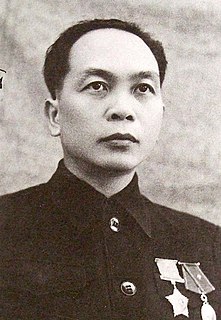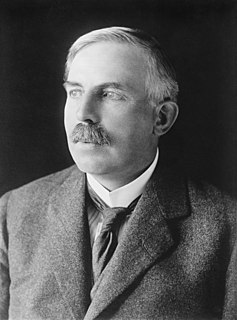A Quote by African Spir
So many forces and resources would become available if States, aware (or conscious) of their true (or real) mission, would want to get on (or agree) to abolish every politics aiming at ("visant à", Fr.) expansion or hegemony; system that maintain among nations a a perpetual distrust and tension, impose on them (or force or compel, "leur impose", Fr.) formidable armies and crushing war budgets.
Related Quotes
Besides the progress of industry and technique, we see a growing discontent among the masses; we see, besides the expansion ("expansion,", Fr.) of instruction, distrust and hatred expanding among nations ("s'étendre la méfiance et la haine entre," Fr.), that vie with one another ("qui rivalisent à l'envi," Fr.), by the increase of their armies and the improvement of their engines of murder ("engins meurtriers", Fr).
It goes without saying that only inner greatness possess a true value ("une valeur véritable,", Fr.) . Any attempt to rise up (or at rising up, - "s'élever", Fr.) outwardly above others, or to want (or wish) to impose one's superiority, denote a lack of moral greatness, since we do not try to replace ("suppléer", Fr.) in that way (.... in French "par là", Fr.) to what, if we did really possess it, would have no need whatsoever to flaunt itself.
The need for sociability induce man to be in touch with his fellow men. However, this need might not ("ne saurait", Fr.) find its full (or complete) satisfaction in the conventional (or superficial, - "conventionnel", Fr.) and deceitful world, in which (or where) everyone is mainly (or mostly) trying to assert oneself in front of others ("devant les autres", Fr.), to appear, and hoping to find in society ("mondaine", Fr.) relationships some advantages for his interest and vanity (or vainglory or conceit", Fr).
As the antagonism between those who possess, and those who do not, is becoming more acute day after day, we can already foresee a moment when it will bring about ("entraînera", Fr.) severe (big, high, intense, - "grands", Fr.) disasters, if we do turn (direct, aim, - "dirige", Fr.) life in time the social life in new directions (or ways, - "dans des voies nouvelles", Fr.)
When under the influence of certain (or some) reasons (or causes) (alcohol, war, etc - added Spir here) the low instincts are unbridled (or unrestrained), the brute appears (or come forward, "apparait", Fr.) and rule over (or dominate), stifling every ("toute", Fr.) noble, generous impulse; it is then the ruin (or downfall or decline) of any humanity in man.
The feeling ("sens", Fr.) of solidarity that is born amidst a community rest on the feeling of antagonism arouse (aroused ? arose ?... sorry, - "suscité", Fr.) by those who are opposed to it. Most of the time we only adhere to a party or a group, in order to better (or more, - "pour mieux se", Fr.) differentiate ourselves of another.
Education has a tremendous power on man. Can't we see to which astonishing disciple the people of Sparte have submitted ("s'est plié", Fr.) for centuries, and this with a view to very petty purposes: purely outer greatness, the military predominace of Sparte. This example proves that man can everything on themselves when they want it ("peuvent tout sur eux-mêmes quand ils le veulent", Fr.); therefore it would only be a question of making them will the good.
The tyrant, who in order to hold his power, suppresses every superiority, does away with good men, forbids education and light, controls every movement of the citizens and, keeping them under a perpetual servitude, wants them to grow accustomed to baseness and cowardice, has his spies everywhere to listen to what is said in the meetings, and spreads dissension and calumny among the citizens and impoverishes them, is obliged to make war in order to keep his subjects occupied and impose on them permanent need of a chief.






























